Why you snore during pregnancy
Many pregnant women experience snoring during their late stages of pregnancy. It is common that women who were never snorers before pregnancy can experience pregnant snoring. In fact, snoring occurs in nearly half of all women during pregnancy. This is commonly seen towards the end of the second trimester and during the third trimester. Some women may not show signs of snoring at all during their first and second trimesters, however later develop snoring issues in the third trimester. There are several factors listed below that may trigger pregnancy snoring.
Weight Gain
Snoring during pregnancy can be caused by simply gaining weight during your second and third trimesters. As you gain weight, fat deposits can accumulate in the neck and throat areas which can actually narrow your airway and block the passage of air. The air then vibrates off the soft tissues in your neck down the blocked airway which causes the sound of snoring. You should always check with your doctor to ensure you are gaining a safe amount of weight during pregnancy. If you are gaining too much, it’s possible that you will experience pregnant snoring until you deliver. Some may think that if you start snoring, you may never stop. This isn’t exactly true. Once you start to lose your baby weight, you will most likely stop snoring, especially if you never snored before you got pregnant.
Fluid Retention
Retaining fluid and gaining water weight may also be the cause of pregnancy snoring. Swelling is a normal side effect of pregnancy because your body is producing additional blood for the baby and you are drinking more fluid in general. It’s common to retain fluid in your hands, legs, feet, and even in your face. The extra water actually aids in expanding your body to accommodate the baby, so the tissues in your throat could soften even more than they already are and restrict the airflow when you sleep, thus causing snoring.
Changes in hormone levels
Watch out for this one! There are several hormones that will impact your body during your pregnancy. A few of these hormones include HCG, Progesterone, Estrogen, and Relaxin, among others. The effects of these ever-changing hormones during pregnancy include inflammation, nausea, clumsiness, dizziness, and yes, even snoring. Pregnancy snoring can be partially caused by changes in your hormones (mainly attributed to increased mucus or water retention as stated earlier.)
Gestational diabetes
Gestational diabetes simply means becoming diabetic during pregnancy. The diabetes is usually reversed once the baby is born, but in some cases, the mother could remain diabetic even after pregnancy. It’s possible that pregnant snoring and gestational diabetes may go hand in hand. Inadequate airflow and oxygen from blocked airways (from weight gain or inflammation) could activate your sympathetic nervous system, causing blood pressure to rise at night which increases the risk of diabetes and snoring. If you snore before pregnancy, you will be at a higher risk of developing gestational diabetes during pregnancy. If you do not snore before you are pregnant, you many coincidentally develop gestational diabetes, which could then result in snoring. Some say the two are linked and related, however, it’s possible they are not linked to each other at all.
Sleep Apnea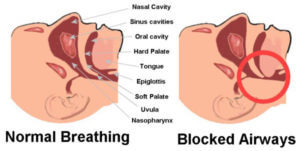
Another potential reason for snoring while pregnant is the development of obstructive sleep apnea before or during pregnancy. Sleep apnea is a disorder that is distinguished by a series of pauses in breathing during sleep. The pauses are usually followed by very loud snores as the body attempts to unblock the obstruction and resume normal breathing. Sleep apnea can develop for several reasons including weight gain, enlarged tonsils, experiencing allergies, or a hereditary history. If you think that your pregnant snoring is due to sleep apnea, you should ask your doctor to refer you for an overnight sleep study to determine if you do indeed have OSA.
The Impact of Pregnant Snoring and How to Avoid It
The University of Michigan did a study that suggested that 2 out of 3 of pregnant snorers were more likely to deliver babies below the tenth percentile and twice as likely to need a c-section for delivery. Snoring and sleep apnea both cause inflammation and this alters the blood vessels going to the placenta, so fewer nutrients and blood get to the fetus which can significantly stunt growth. Don’t freak out. It’s going to be okay. There are actually several methods to prevent and stop pregnancy snoring.
Decrease Caffeine Intake
Most pregnant women are urged to refrain from caffeinated beverages during pregnancy because it can impact the fetus, but it can also trigger pregnancy snoring as well. Caffeine consumption can cause inflammation in the neck and throat. This narrows your airway and can eventually cause snoring during the night. Certain foods like dark chocolate and teas can have low amounts of caffeine that you wouldn’t expect were there. Be sure to check all food labels to ensure they are caffeine-free.

Sleep With Your Head Elevated
Sleeping with your head elevated by at least 4 inches could prevent and reduce pregnancy snoring. You can use a few extra pillows for the elevation or scoot up a bit towards the headboard and then put your pillows down to give you something to lean back on. Elevating your head 4″-6″ should keep your tongue in place and keep it from slipping back and blocking your airway, which then causes the sound of snoring.
Sleep on your Side – Left is Best for Digestion
A great preventative way to not snore is to sleep on your side – and the left side is best. The tongue and throat muscles relax when you  sleep on your back; this causes a blocked airway and snoring. By sleeping on your side, the muscles still relax, however, they do not cover the airway since you are on your side. Studies show sleeping on your left side not only prevents snoring but is beneficial for your health overall. It improves digestion and filters toxins and wastes more quickly. This may be one of the simplest solutions to prevent pregnancy snoring.
sleep on your back; this causes a blocked airway and snoring. By sleeping on your side, the muscles still relax, however, they do not cover the airway since you are on your side. Studies show sleeping on your left side not only prevents snoring but is beneficial for your health overall. It improves digestion and filters toxins and wastes more quickly. This may be one of the simplest solutions to prevent pregnancy snoring.
Use a Snoring Mouthpiece or Nasal Strips
There are several over the counter and prescription based products available to stop pregnancy snoring. Two common products are anti-snoring mouthpieces and nasal strips. Both products are non-invasive, affordable, and easy to use. Pregnancy snoring mouthpieces may require some molding to your mouth, but most products can be custom formed in the comfort of your own home. The mouthpieces stop pregnancy snoring by holding your tongue in place so that it does not block the airway in the back of your throat which causes the sound of snoring. Some recent studies show that you can take your mouthpiece to the delivery room with you and it can even help you during the pushing stage of labor. I have personally reviewed dozens of pregnancy snoring mouthpieces and there is a lot to consider when choosing the right one. I encourage you to visit this table which breaks down the pros and cons of each brand.
If you prefer to not have a device in your mouth during the night time, you can buy nasal strips to avoid pregnancy snoring. The nasal strips open up your nasal passage so you can breathe through your nose better and not your mouth, which eliminates the cause of snoring.
Use a Humidifier at Bedtime
Some women experience allergies or congestion during their pregnancy and snoring may occur. If you have a humidifier, it may help to treat pregnancy snoring in that the humid air can clear your nasal passage and allow you to breathe more comfortably through your nose. The humidifier will be most effective during the dry winter season or during peak allergy seasons.
Watch your Calorie Intake
Work closely with your doctor to ensure that excess weight gain is not the cause of your snoring. It is common for most adults to experience snoring after significant weight gain occurs. If you do gain more than normal weight during pregnancy, you can try one of the recommended options above to stop snoring during your pregnancy. Just remember, just because you snore during your pregnancy does not necessarily mean you will snore after you deliver the baby. Most women lose their baby weight rather quickly and the snoring goes away with the weight loss. There are several options to stop snoring even if it sticks around.
Oxygen Therapy to Treat OSA
Some pregnant women can develop obstructive sleep apnea before or during their pregnancy. This is a medical condition where you physically stop breathing momentarily several times throughout the night. This is not only harmful to your body but is also preventing airflow to the fetus. OSA should be treated with oxygen therapy and a CPAP machine. A sleep study needs to be performed in order to diagnose sleep apnea so it’s best to work with your primary care provider to take the necessary steps to getting a sleep study referral. There is a difference between just snoring, and having sleep apnea so it’s best for you and your baby to evaluate the severity of your snoring issue.
Do Not Use Tobacco, Drink Alcohol, or Take Sleeping Pills
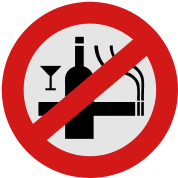 You should not use tobacco or be around second-hand smoke during pregnancy. Not only is smoking bad for the fetus but it can also be the cause of your snoring during pregnancy. The same goes for drinking alcohol and taking sleeping pills, as the use of these products is more likely to narrow your airway in your throat, which will block the flow of air and increase your chance of snoring.
You should not use tobacco or be around second-hand smoke during pregnancy. Not only is smoking bad for the fetus but it can also be the cause of your snoring during pregnancy. The same goes for drinking alcohol and taking sleeping pills, as the use of these products is more likely to narrow your airway in your throat, which will block the flow of air and increase your chance of snoring.
Avoid Heavy or Spicy Meals Before Bed
It’s best to lay off those spicy meals or anything really heavy for that matter before going to bed, as this can also be the culprit for your snoring. Extremely spicy foods may cause inflammation in your mouth and throat which can block your airway and result in snoring. You may want to consider raising your head with a few pillows at bedtime if you just ate a big meal, as this can also cause acid reflux if you lay down right away.
Share This Post:

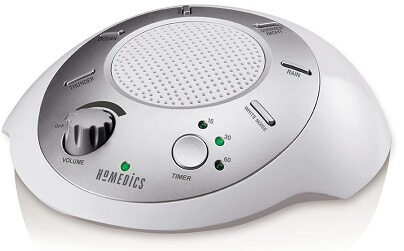 Sleeping next to a partner who snores is not only frustrating but may even cause you to lose sleep, placing a strain on your relationship. Snoring is an issue that affects an estimated 40% – 50% of the US population. It’s no wonder why anti-snoring products are a multi-billion dollar industry. As for solutions, there’s everything from dietary supplements to snoring mouthpieces, and then there’s the
Sleeping next to a partner who snores is not only frustrating but may even cause you to lose sleep, placing a strain on your relationship. Snoring is an issue that affects an estimated 40% – 50% of the US population. It’s no wonder why anti-snoring products are a multi-billion dollar industry. As for solutions, there’s everything from dietary supplements to snoring mouthpieces, and then there’s the  Not only can a ceiling fan provide air circulation, cooling, and light, it also produces white noise. The hum of a ceiling fan and sometimes off-balance rocking can be a soothing source of white noise. The older and less expensive models produce the more white noise while the newer, more expensive models are typically not nearly as effective. While the sound of a ceiling fan can be somewhat faint, it may be just enough to mask your partners snoring and allow you to
Not only can a ceiling fan provide air circulation, cooling, and light, it also produces white noise. The hum of a ceiling fan and sometimes off-balance rocking can be a soothing source of white noise. The older and less expensive models produce the more white noise while the newer, more expensive models are typically not nearly as effective. While the sound of a ceiling fan can be somewhat faint, it may be just enough to mask your partners snoring and allow you to  An excellent source of white noise is your television. If you have a TV in your bedroom, give this a try. Tune your television to a channel that does not have a signal. Such channels typically show white/gray/black flashing dots which are often referred to as “snow”. Before going to bed, turn on the television to this station and increase the volume until the sound of their snoring is masked. Understand that adjusting the volume too loud may be counterproductive and actually keep you awake. The idea is to strike a balance and mask the sound of snoring so that it doesn’t become distracting and not being so loud that it keeps you awake.
An excellent source of white noise is your television. If you have a TV in your bedroom, give this a try. Tune your television to a channel that does not have a signal. Such channels typically show white/gray/black flashing dots which are often referred to as “snow”. Before going to bed, turn on the television to this station and increase the volume until the sound of their snoring is masked. Understand that adjusting the volume too loud may be counterproductive and actually keep you awake. The idea is to strike a balance and mask the sound of snoring so that it doesn’t become distracting and not being so loud that it keeps you awake. Similar to a television, a radio can also produce soothing white noise. To achieve this, simply tune your radio to a station with no reception. Try this on both AM and FM frequencies as there’s a slight difference in sound. Adjust the volume to a comfortable level that helps to cancel out the sound of your partners snoring. Once again, don’t adjust the volume too loud as this will keep you awake.
Similar to a television, a radio can also produce soothing white noise. To achieve this, simply tune your radio to a station with no reception. Try this on both AM and FM frequencies as there’s a slight difference in sound. Adjust the volume to a comfortable level that helps to cancel out the sound of your partners snoring. Once again, don’t adjust the volume too loud as this will keep you awake. A number of websites offer white noise sound generators. These sound generators are often free and allow you to adjust settings such as volume, intensity, and even the type of noise. There are several sites with excellent interfaces that work from your browser and are easy to use. All you need is a computer, internet connection, and a good set of speakers. After locating a site that you prefer and setting the sound to the desired level, be sure to turn off your monitor to save power and prevent distractions from the light.
A number of websites offer white noise sound generators. These sound generators are often free and allow you to adjust settings such as volume, intensity, and even the type of noise. There are several sites with excellent interfaces that work from your browser and are easy to use. All you need is a computer, internet connection, and a good set of speakers. After locating a site that you prefer and setting the sound to the desired level, be sure to turn off your monitor to save power and prevent distractions from the light.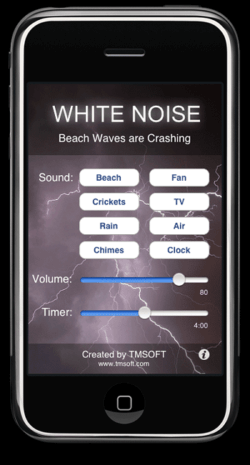 A “smarter” alternative to using a computer is to use an app on your smartphone or a tablet. Like the desktop computer, there are several apps that can be downloaded, often at no charge. These apps are available for both Android and iOS. For improved performance, consider pairing your smartphone with a sound box using Bluetooth. This will provide better sound quality and will also allow you to place the speaker in any desired position around your bedroom.
A “smarter” alternative to using a computer is to use an app on your smartphone or a tablet. Like the desktop computer, there are several apps that can be downloaded, often at no charge. These apps are available for both Android and iOS. For improved performance, consider pairing your smartphone with a sound box using Bluetooth. This will provide better sound quality and will also allow you to place the speaker in any desired position around your bedroom. After trying some or all of these ideas, you may find that nothing seems to drown out your partners snoring. When this occurs, you may be tempted to give earplugs a try. Unfortunately, earplugs may also prevent you from hearing your alarm clock in the morning or may prevent you from hearing the sound of a smoke or carbon monoxide alarm which can be dangerous.
After trying some or all of these ideas, you may find that nothing seems to drown out your partners snoring. When this occurs, you may be tempted to give earplugs a try. Unfortunately, earplugs may also prevent you from hearing your alarm clock in the morning or may prevent you from hearing the sound of a smoke or carbon monoxide alarm which can be dangerous.
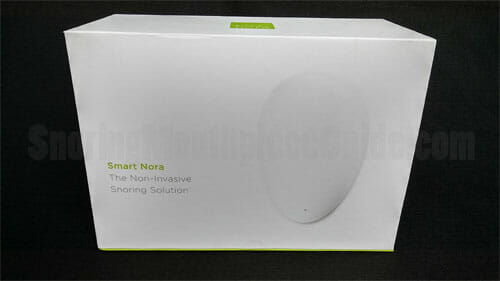

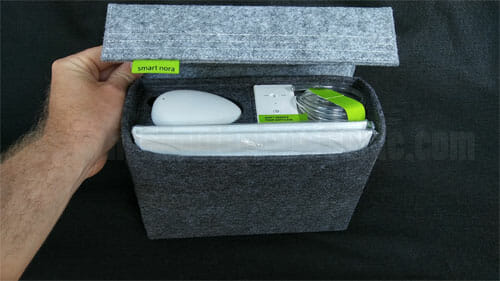
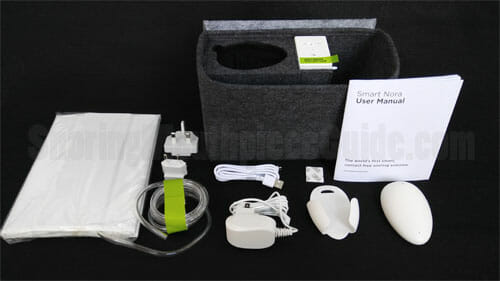
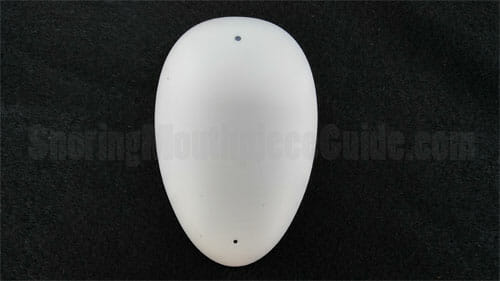
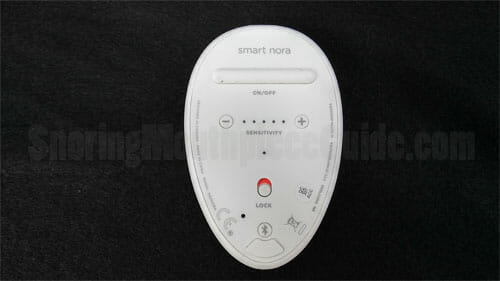




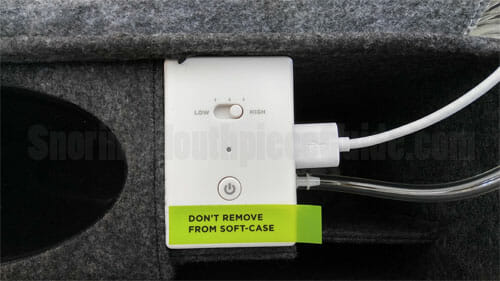
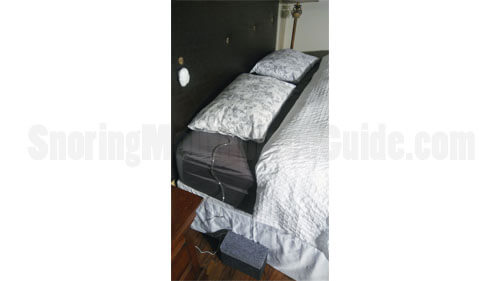
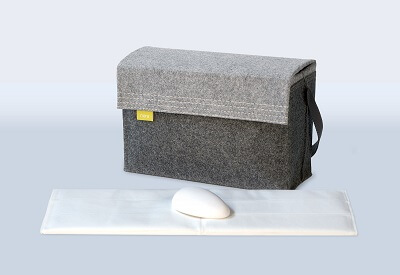 Every product has a story behind it, including Smart Nora.
Every product has a story behind it, including Smart Nora.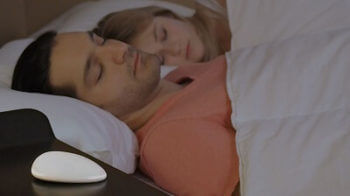 The Smart Nora Smart Snoring Solution is an innovative anti-snoring device that’s unlike anything that is currently on the market such as mouthpieces, chinstraps, nose strips, nose clips, throat spray, herbal remedies, etc. In fact, with Smart Nora, you don’t wear, ingest or attach anything to your body.
The Smart Nora Smart Snoring Solution is an innovative anti-snoring device that’s unlike anything that is currently on the market such as mouthpieces, chinstraps, nose strips, nose clips, throat spray, herbal remedies, etc. In fact, with Smart Nora, you don’t wear, ingest or attach anything to your body.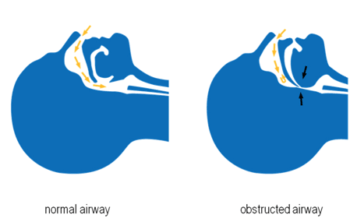 This device sounds very interesting but how does raising or lowering the head control snoring?
This device sounds very interesting but how does raising or lowering the head control snoring? So how much will you pay for the Smart Nora? When the Kickstarter campaign was initially launched in 2015, the first backers were able to pre-order theirs for $179. Today, they are priced at $299 with an occasional discount of $41, bringing the total to $259 with free shipping to both the US and Canada. International shipping is also available for an additional charge.
So how much will you pay for the Smart Nora? When the Kickstarter campaign was initially launched in 2015, the first backers were able to pre-order theirs for $179. Today, they are priced at $299 with an occasional discount of $41, bringing the total to $259 with free shipping to both the US and Canada. International shipping is also available for an additional charge. According to the National Sleep Foundation, approximately
According to the National Sleep Foundation, approximately  While fully functional without an app, Smart Nora can sync with your smartphone to provide audio recordings of your snoring as well as other information on your sleeping habits such as the number of hours you slept, the number of times Smart Nora was activated, and the peak decibel level of your snoring. This valuable information can help you to track and better understand the effectiveness of the Smart Nora.
While fully functional without an app, Smart Nora can sync with your smartphone to provide audio recordings of your snoring as well as other information on your sleeping habits such as the number of hours you slept, the number of times Smart Nora was activated, and the peak decibel level of your snoring. This valuable information can help you to track and better understand the effectiveness of the Smart Nora. A common question asked by those who have placed a pre-order is “When will I receive my Smart Nora?”.
A common question asked by those who have placed a pre-order is “When will I receive my Smart Nora?”.
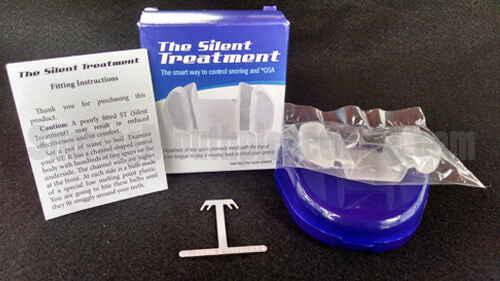

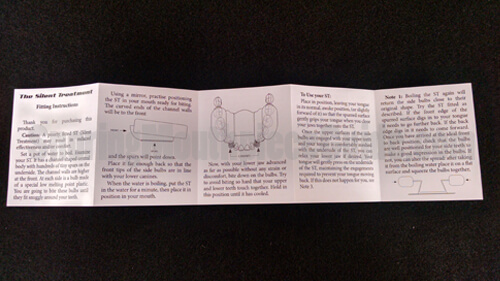
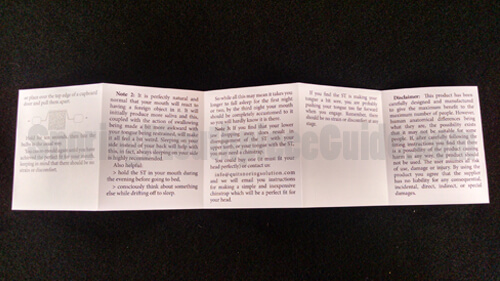
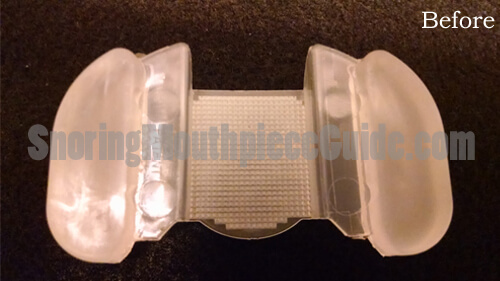
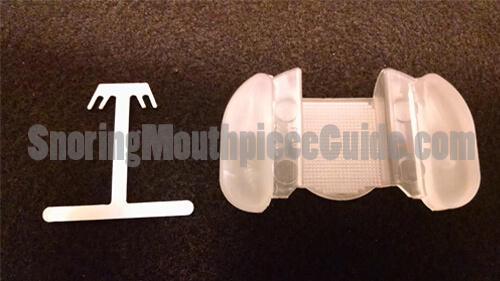
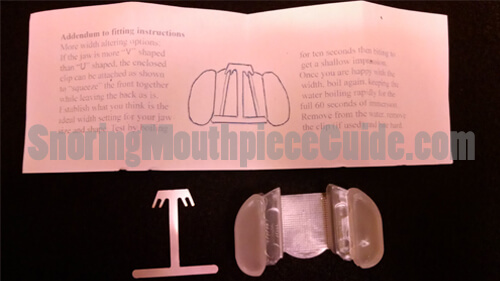
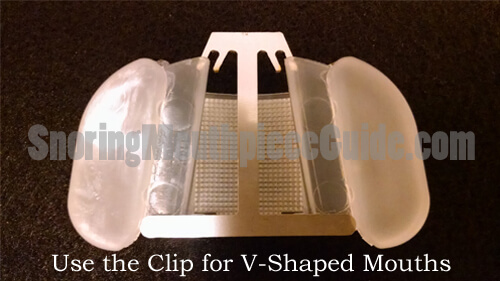
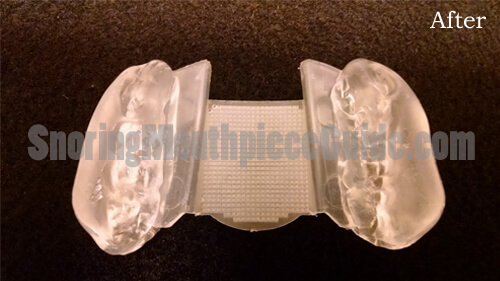

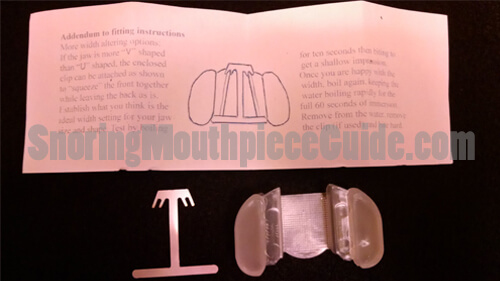
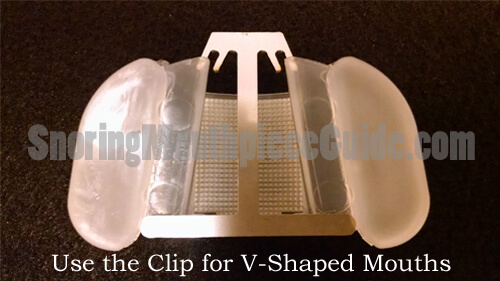 through and have my top and bottom teeth touch. I waited for a minute or so until the device cooled down and then removed it from my mouth and ran it under cool water. I allowed it to dry and placed it in the storage container that was included in my box and stored it on my nightstand ready for the approaching evening’s use.
through and have my top and bottom teeth touch. I waited for a minute or so until the device cooled down and then removed it from my mouth and ran it under cool water. I allowed it to dry and placed it in the storage container that was included in my box and stored it on my nightstand ready for the approaching evening’s use.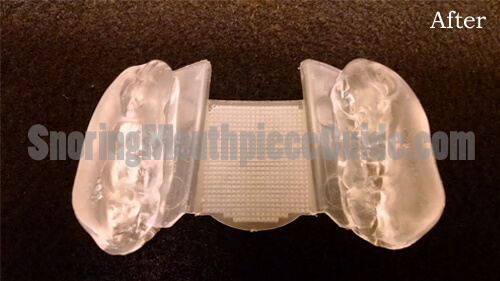
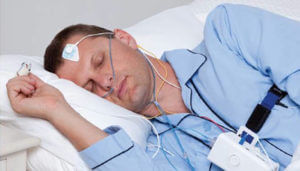
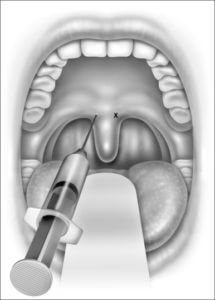 Will I be in the hospital for several days?
Will I be in the hospital for several days?
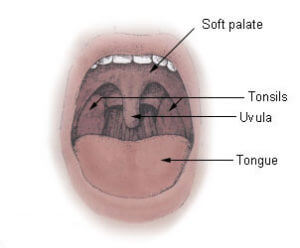


 Most general medical doctors would not have these instruments accessible during a routine checkup but they may suggest taking a few x-rays in order to see the adenoids and any inflammation that might be occurring.
Most general medical doctors would not have these instruments accessible during a routine checkup but they may suggest taking a few x-rays in order to see the adenoids and any inflammation that might be occurring. Sleep apnea (a short paused breathing while sleeping)
Sleep apnea (a short paused breathing while sleeping)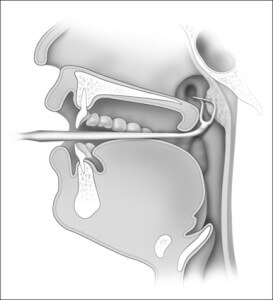 nasal problems and impaired hearing. The procedure is one of the most frequented surgeries done in the U.S. and is most commonly performed on children under the age of 6. Adenoidectomies are performed by ENT surgeons. The procedures are typically done at an outpatient surgery center where general anesthesia is administered. The adenoids are removed from the mouth so there are no other incisions or cuts inside the mouth besides the actual removal of the tissue. Since the surgery is typically done in an outpatient environment, patients usually go straight home once the procedure is completed and has had a successful recovery period following the procedure – about 5 hours. This time frame can fluctuate based on the patient’s performance during surgery and how quickly they awaken from the anesthesia.
nasal problems and impaired hearing. The procedure is one of the most frequented surgeries done in the U.S. and is most commonly performed on children under the age of 6. Adenoidectomies are performed by ENT surgeons. The procedures are typically done at an outpatient surgery center where general anesthesia is administered. The adenoids are removed from the mouth so there are no other incisions or cuts inside the mouth besides the actual removal of the tissue. Since the surgery is typically done in an outpatient environment, patients usually go straight home once the procedure is completed and has had a successful recovery period following the procedure – about 5 hours. This time frame can fluctuate based on the patient’s performance during surgery and how quickly they awaken from the anesthesia.



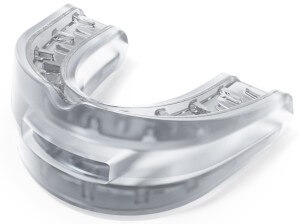
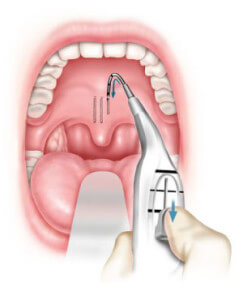
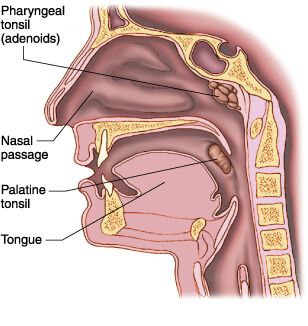

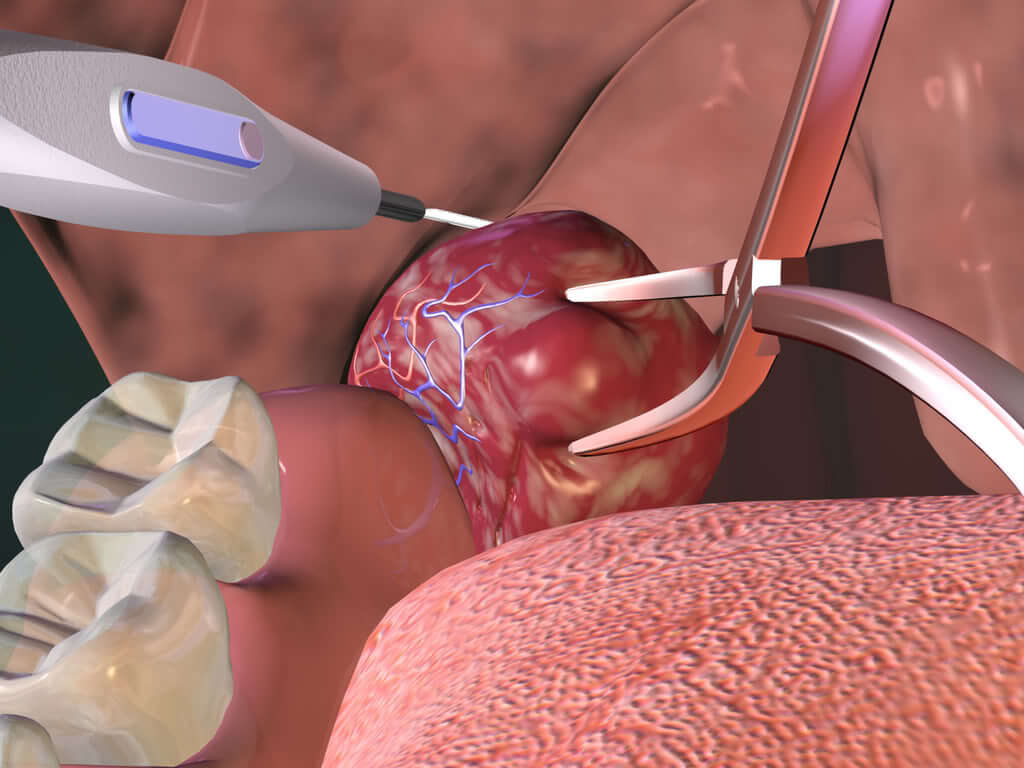 Long-Term Reactions
Long-Term Reactions
 be prevented. If you are unsure about taking a medicine or combining it with alcohol or another medication, make sure you consult your physician immediately.
be prevented. If you are unsure about taking a medicine or combining it with alcohol or another medication, make sure you consult your physician immediately.
 LAST UPDATE: 4/10/2019
LAST UPDATE: 4/10/2019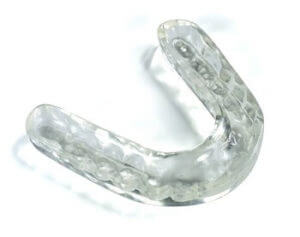
 This may leave you wondering why such mouthguards are sold online but not in drug stores such as Walgreens or CVS.
This may leave you wondering why such mouthguards are sold online but not in drug stores such as Walgreens or CVS.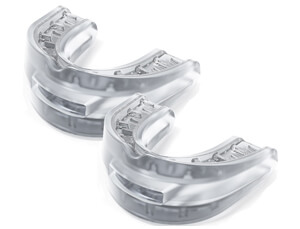
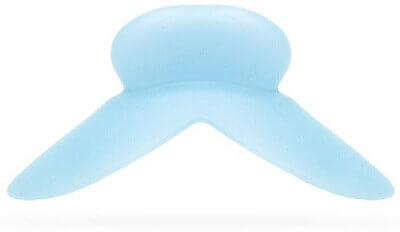
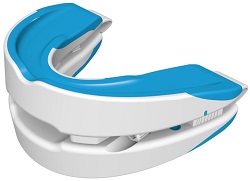
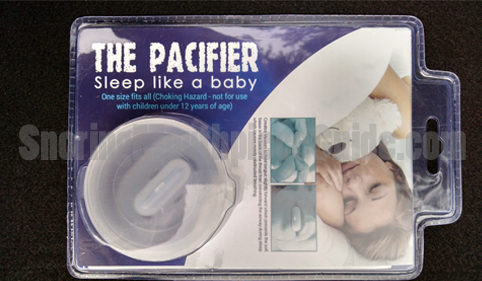
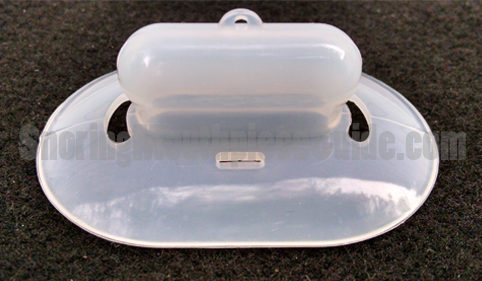
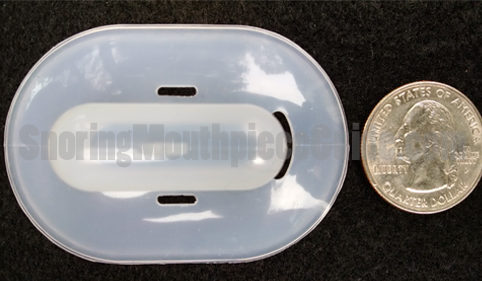

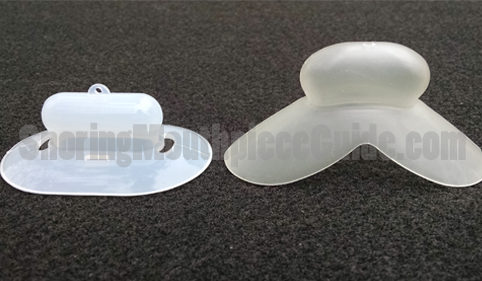


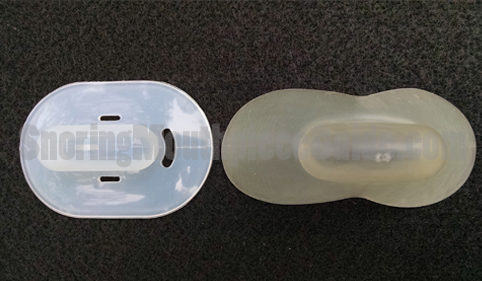
 In the US, oral appliances that are used to prevent snoring are considered a class II medical device. Manufacturers who sell such devices are required to have their product “cleared” by the FDA prior to being able to offer it for sale.
In the US, oral appliances that are used to prevent snoring are considered a class II medical device. Manufacturers who sell such devices are required to have their product “cleared” by the FDA prior to being able to offer it for sale. Information on the company’s website as well as the product packaging does not give us any indication as to where this mouthpiece is produced. It’s however believed that the Pacifier is made in China.
Information on the company’s website as well as the product packaging does not give us any indication as to where this mouthpiece is produced. It’s however believed that the Pacifier is made in China. The Snore Pacifier can be purchased from the companies website for $29.99 which includes free shipping within the United States.
The Snore Pacifier can be purchased from the companies website for $29.99 which includes free shipping within the United States. The Good Morning Snore Solution (GMSS) and the Pacifier have several similarities as well as differences.
The Good Morning Snore Solution (GMSS) and the Pacifier have several similarities as well as differences. In the past, I have tested two other tongue stabilizing devices with outstanding results. Due to the relatively high price tag of both devices, I was eager to find a less expensive alternative to the tried-and-true Good Morning Snore that I have used for quite some time now. Priced at $30, it’s nearly a quarter of the cost of competing TSD’s.
In the past, I have tested two other tongue stabilizing devices with outstanding results. Due to the relatively high price tag of both devices, I was eager to find a less expensive alternative to the tried-and-true Good Morning Snore that I have used for quite some time now. Priced at $30, it’s nearly a quarter of the cost of competing TSD’s.